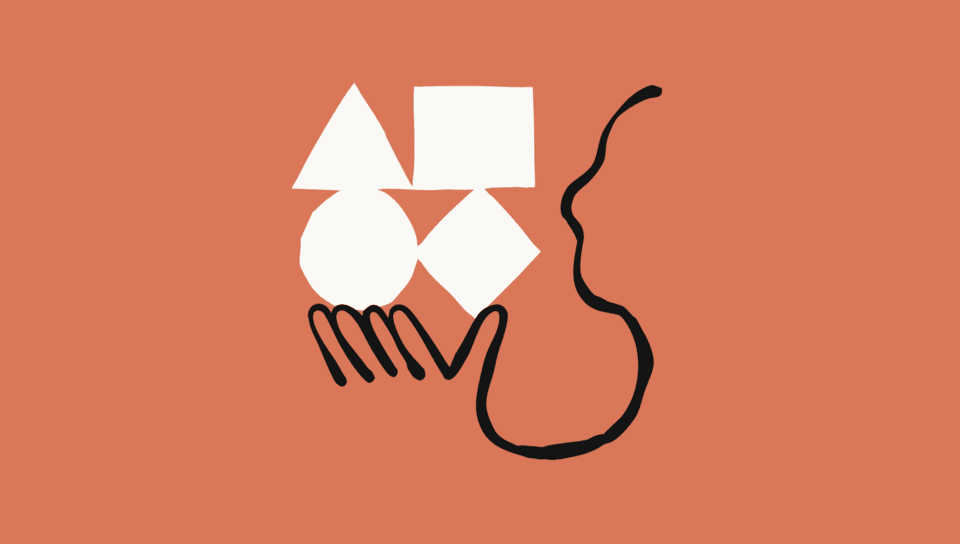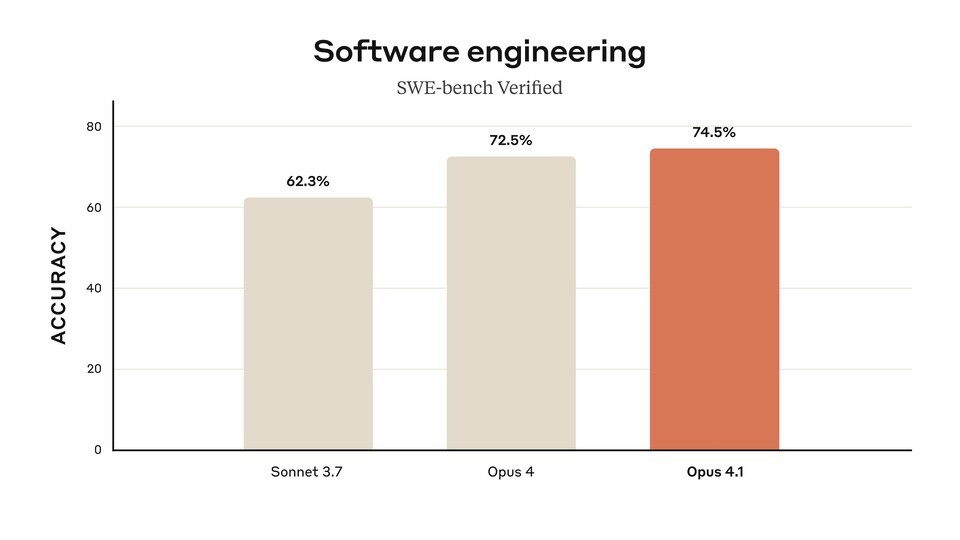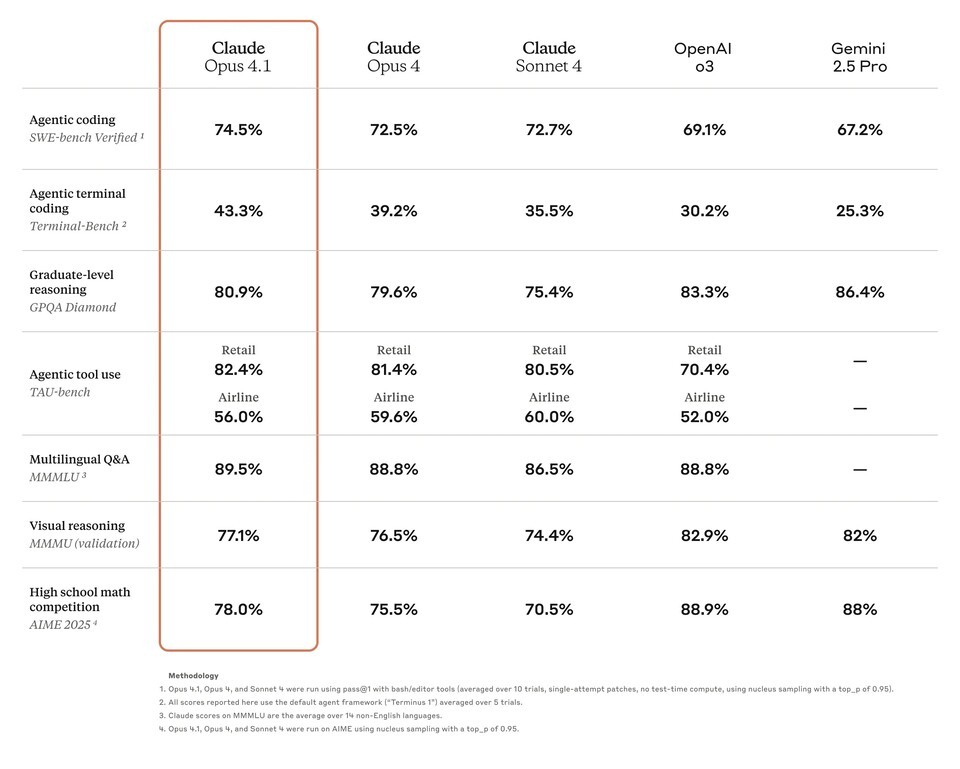Anthropic, an American AI startup, unveiled its flagship AI model, “Claude Opus 4.1,” on the 5th (local time).

The release of Claude Opus 4.1 is regarded as a strategic upgrade from Anthropic amid the fierce AI competition, especially with the announcement of the upcoming launch of OpenAI’s next-generation GPT-5.
While Opus 4.1 is priced the same as the previous model, it is reported to have achieved significant performance improvements particularly in coding, reasoning, and agent tasks. This announcement clearly illustrates Anthropic’s strategy to target not only the consumer market but also the corporate sector.
Anthropic emphasizes that this model shows particular strengths in the “code modification” sector. It recorded an accuracy of 74.5% on the software engineering benchmark SWE-bench Verified, which is a slight increase from the previous version Claude 4’s result of 72.5%.

The developer collaboration platform GitHub also recognized significant performance improvements in multi-file refactoring. Actual development organizations like Japan’s Rakuten evaluated that “accurate modification operations can be carried out even in large codebases.”
Claude 4.1 is already available to GitHub Copilot for Enterprise users and can be accessed through various avenues such as the cloud platforms Amazon Bedrock, Google Cloud Vertex AI, and the Claude API. The pricing remains unchanged at $15 per million input tokens and $75 per million output tokens.
The release of Claude 4.1 coincides with rumors surrounding the launch of GPT-5. Although no official schedule has been announced, foreign media reports suggest that OpenAI is preparing to unveil GPT-5 in August. Consequently, Anthropic’s swift release of its new model is viewed as an attempt to gain a competitive edge in the market.
Mike Krieger, Anthropic’s Chief Product Officer, stated in an interview with Bloomberg, “We are focusing on our technology” and avoided direct comments on the competition. However, the AI industry perceives this release as a strategic move to counter GPT-5.

Anthropic’s market share is also showing signs of reversal, with Menlo Ventures recently reporting that Anthropic currently holds 32% of the enterprise large language model market. This is ahead of OpenAI’s 25% share.
Only two years ago, in 2023, OpenAI led with a 50% market share, while Anthropic held just 12%. However, the situation has now completely reversed, especially in the coding sector, where Anthropic’s market share stands at 42%, approximately double that of OpenAI’s 21%.
The preference for Claude among companies is not solely due to performance. The model’s high predictive accuracy and its ability to be applied without errors in real-world situations serve as significant strengths for its ‘reliability.’
Claude 4.1 has shown gradual performance improvements in major benchmarks. It recorded an improved accuracy of 80.9% on GPQA Diamond, which evaluates graduate-level knowledge reasoning, and achieved 78.0% in the American Mathematics Competitions (AIME) simulation, showing an increase from previous scores.
However, not all areas saw performance improvements. In TAU-bench, which analyzes airline-related information, performance fell from 59.6% to 56.0%. This indicates that some limitations still exist in certain fields.
Anthropic describes Claude 4.1 as a ‘drop-in replacement’ for existing models, retaining the same price and structure while enhancing specific performance aspects.
Currently, Claude 4.1 is designed primarily for English usage and operates on a limited basis for Korean users. However, given that many corporate environments handle English-based materials, some domestic companies are reportedly testing the Claude API.
As cloud-based API usage increases, support for various languages is expected to expand. In fact, Anthropic is collaborating with several global platforms to broaden the application scope of the model.
If the range of Korean language support is expanded in the future, the Claude series is likely to be introduced in various fields, such as productivity tools, corporate workflow automation, and technical document summarization in the domestic market.
The release of Claude 4.1 holds significance as more than a mere model update. Amid the trend emphasizing ‘usable AI’ in the corporate sector, Anthropic has strategically focused on accuracy and practical applicability.
The specifics of GPT-5’s arrival and format remain unknown, but Anthropic is establishing its position as a ‘field-oriented model’ ahead of its rival. The AI competition is no longer solely about performance but rather about who can solve problems more utility-wise, precisely, and quickly.
This launch of Claude 4.1 could serve as a first step, reflecting the shift in how the industry views AI. It is crucial to stay attuned to this evolving trend.